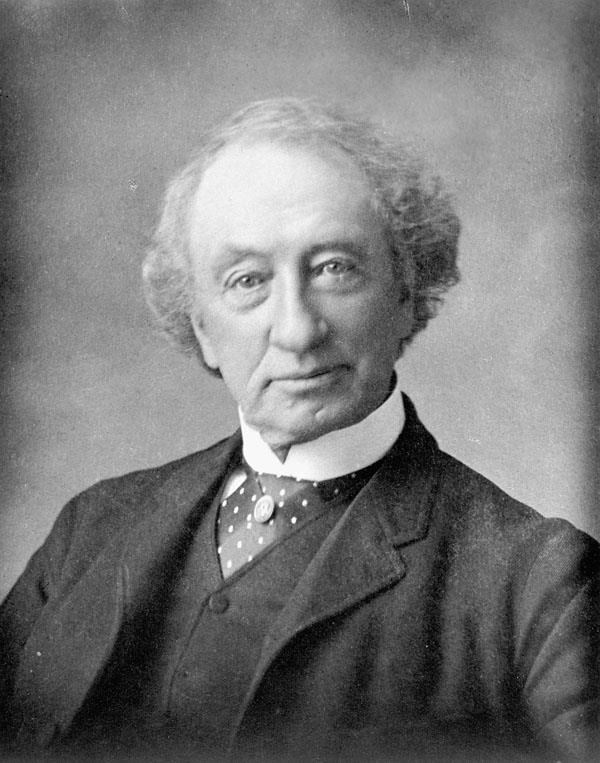A recommendation by an Ontario teachers' union to pull the name of Canada's first prime minister from all schools in the province has the local French public board thinking about the issue, said the board's director of education.
The Elementary Teachers' Federation of Ontario (ETFO) passed a motion at its annual meeting last week calling on all school districts in Ontario to rename schools and buildings named after Sir John A. Macdonald.
The union said it wants the name change because of what it calls Macdonald's role as the "architect of genocide against Indigenous Peoples."
Macdonald was prime minister during the time the federal government approved the first residential schools in the country, and was the minister behind the reserve system, the Indian Act. In planning to link the country by rail, starvation and relocation was used as a tactic to remove First Nations people from areas where the railroad was planned to pass.
The only school in the Greater Sudbury area named for Sir John A. Macdonald is École secondaire Macdonald-Cartier, a Grade 7-12 school in New Sudbury operated by Conseil scolaire public du Grand Nord de l'Ontario.
The school is also named for Sir George-Étienne Cartier, who, along with Macdonald, was a father of confederation. Opened in 1969, it was the first fully government-funded French public high school in the province.
Marc Gauthier, the French public school board's director of education, said the board looked at all of its school mascots recently to ensure none of them had racial overtones.
“But we never thought about John A. Macdonald,” said Gauthier. He said wheels have started “rolling in our heads” since learning of the ETFO motion.
“But changing the name of the school is not something that is done within the board by itself,” he said. “It is something that is done with the school community and that has to be done with the trustees. It is something that is big.”
ETFO Rainbow local president Barb Blasutti said she voted in favour of the motion recommending Macdonald's name be removed from schools.
She said a lot of the debate surrounding the motion focused on how the move would be in the spirit of truth and reconciliation following the legacy of residential schools.
“It was a genocide of our Indigenous peoples,” Blasutti said.
Schools should be safe places, and not named for one of the architects of the residential school system, she said.
When asked if young students would even know much about a politician from 150 years ago, Blasutti said she actually thinks some might.
“I might imagine that it might be part of their history and culture, and they may indeed know the role that Sir John A. Macdonald played,” she said.
Blasutti represents elementary teachers with the Rainbow District School Board, which has not named any of its schools for Macdonald.
“It's not something that I'll have to bring up with our board, anyway,” she said.
Felipe Pareja, the teacher who brought forward the motion, said the vote on the matter was not unanimous.
"It was a healthy debate, it was by no means one-sided," said Pareja, a French teacher in the Peel District School Board. "But ultimately when the vote was called, the floor voted clearly to adopt the motion."
Pareja says that Macdonald's part in establishing the Indian Act, as well as his part in Indigenous peoples' suffering when their land was being taken for Canada's national railway are "darker" sides of Macdonald's history that need to be addressed.
"There's no doubt, they're not comfortable things to talk about, but it doesn't make them any less necessary to talk about and to acknowledge," said Pareja. "This really is something that we see as being in the context of (truth and reconciliation) more than anything else."
Pareja also said it might be difficult for Indigenous students and teachers to go to a school named after someone, who he says was complicit in the genocide of Indigenous people.
The ETFO passed Pareja's motion as a recommendation, which means it will now be up to different school boards across Ontario to decide whether they implement the change or not.
The ETFO's call comes after a student-led campaign at Toronto's Ryerson University last month pushed for the school to change its name out of respect for residential school survivors.
The downtown university is named for Egerton Ryerson, a pioneer of public education in Ontario, who is widely believed to have helped shape residential school policy through his ideas on education for Indigenous children.
And in June, the name of founding father Hector-Louis Langevin was stripped from the building that houses the Prime Minister's Office on Parliament Hill. Langevin argued for a separate school system with a specific mandate to assimilate Indigenous children.
Pareja said the Macdonald issue, if acted upon by school boards, wouldn't be the first case of a motion in the teachers' union leading to change.
Last year, he said a motion passed by the federation led to Chinguacousy Secondary School in Brampton, Ont. changing their sports teams' names from the "Chinguacousy Chiefs," because it was seen as hurtful to Indigenous people.
-With files from Salmaan Farroqui, The Canadian Press
